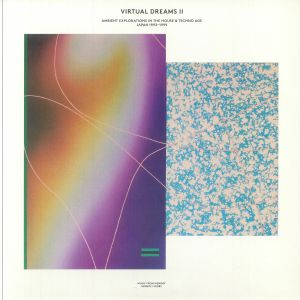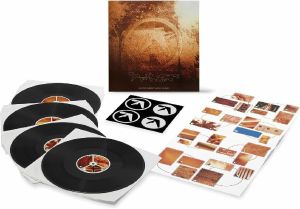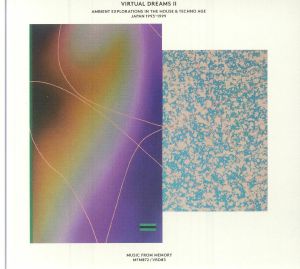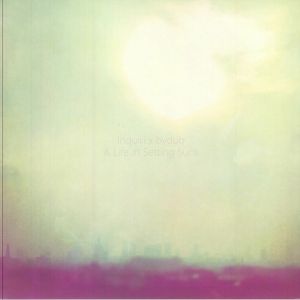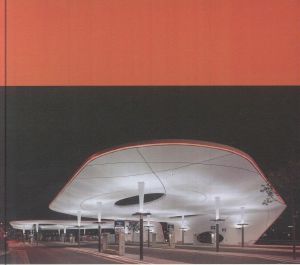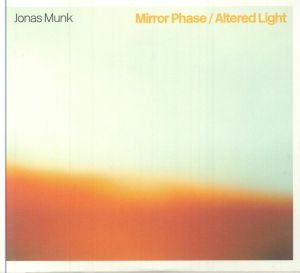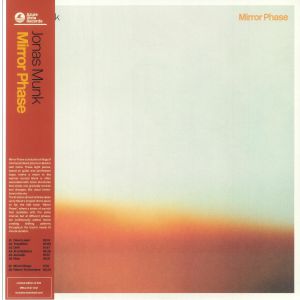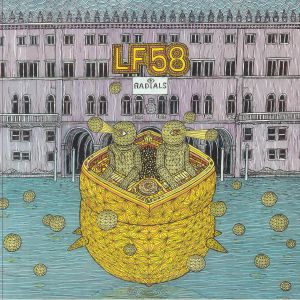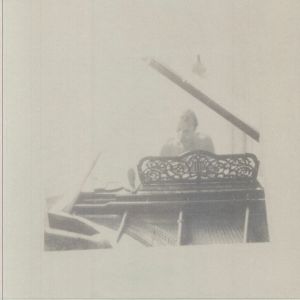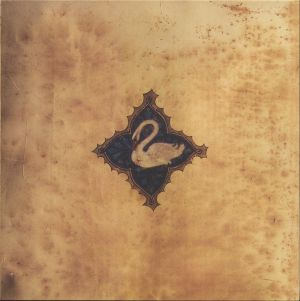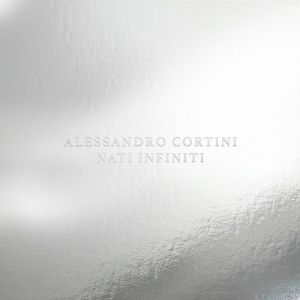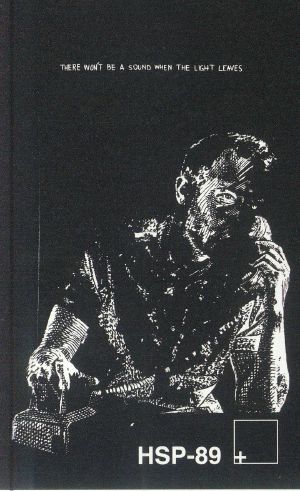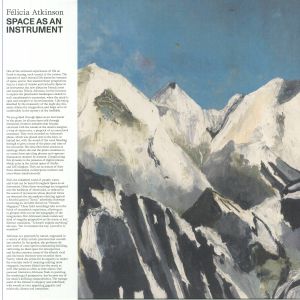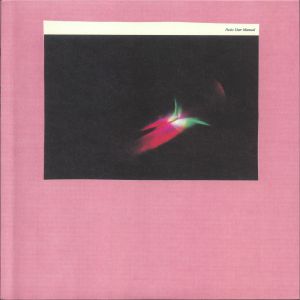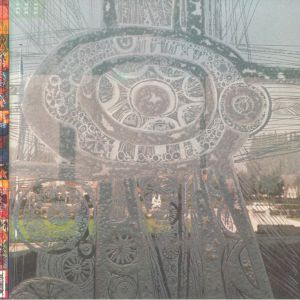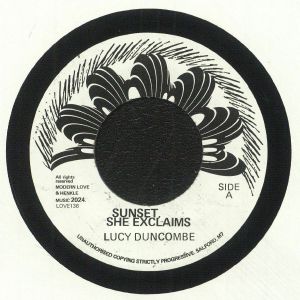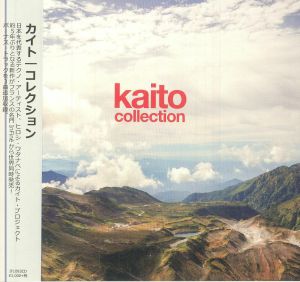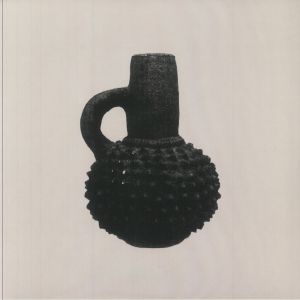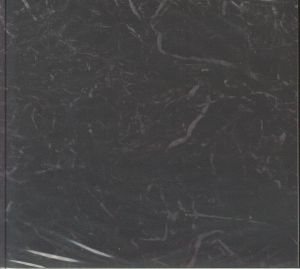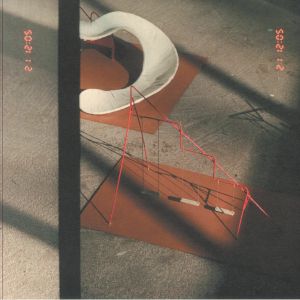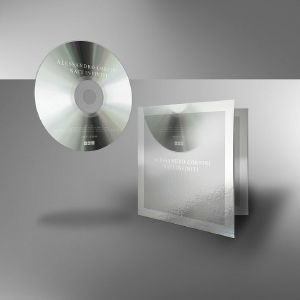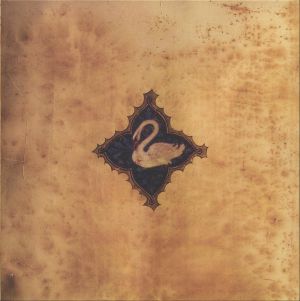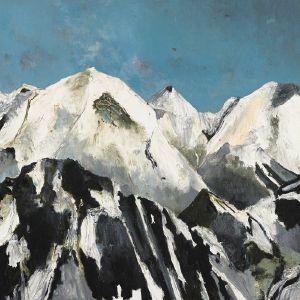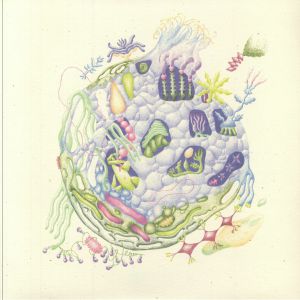Inicio Listas de éxitos de DJ Juno Recommends Ambient Drone
Juno Recommends Ambient / Drone: October 2024
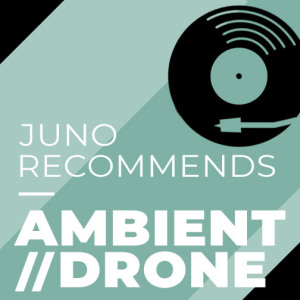
Juno Recommends Ambient/Drone
Juno Recommends Ambient/Drone: October 2024
Read more...
1
VARIOUS
Cat: MFM 072/VRD03. Rel: 21 Oct 24
Ambient/Drone
Review: Music From Memory totally recall and compile this next instalment in their popular multi-artist compilation series, Virtual Dreams. This time centring on Ambient Explorations In The House And Techno Age, Japan 1993-1999, this second edition in the series follows on from the first released in 2020, and continues to shine a light on the house and techno-adjacent music that helped redefine the definition of ambient music during the 1990s. While the first focused on Europe, we venture far further East here, primarily riffing on the many ambient flows and sequential somnaumblisms eminent from the J-shaped isle from the time, including the trans-missive floater, 'Phoenix At Desert' by Akio and the pulse-tidal electro phaseout, Web's 'The Cycle Of Seasons'.
...Read more
out of stock $30.94
2
Cat: WARPLP 21R. Rel: 07 Oct 24
Ambient/Drone
Review: It's the album that redefined ambient music, not least for a generation of parasympathetic ravers. Aphex Twin's Selected Ambient Works Volume II marked a stylistic shift away from the first edition in the infamous ambient LP 'series', Selected Ambient Works 85-92. Volume II differed substantially; this time, there would be no 'techno' addendum to 'ambient', and all tracks thereupon would lack the usual indulgence of beats, however easy-on-the-ears these had been beforehand. Known for its many numbered tracks - which on the original edition, rather than track names, denoted references to images of natural forms, textures and geologic readymades, all bathed in orange, and from which fans had to infer the written names - this expanded edition stays faithful to this origin. Even so, it adds two unreleased D Jamesian treats - provided you don't count the massive Soundcloud dump of 2015 as a release - 'th1 [evnslower]' and a reversed version of 'Rhubarb' - as well as a the previously vinyl only '#19'.
...Read more
out of stock $54.70
3
VARIOUS
Cat: MFM 072CD. Rel: 21 Oct 24
Ambient/Drone
Review: Music From Memory share the CD edition (there's also a vinyl release) of their latest in a series of compilations, which focuses on the tide of new ambient and minimalist electronica which came about at the turn of the millennium, Virtual Dreams. Whilst the first volume focused on the techno and electronica musics emergent in Europe in 1993-99, Virtual Dreams Vol. 2 homes in on Japan during the same period, tracking the regional, geosonic differences between each global cultural centre. Tracing a fibrous thread, that began to weave itself of its own accord, out from the early 90s acid house FOMO experienced in Japan's early days, through to its restful response with the dawn of "listening techno" proffered by the likes of Sublime Records, Syzygy Records and Frogman Records, many of the tracks featured therein cull their choices from not only these leading lights but also the odd and not-so-odd rarity, helping usher in a truer representation of the era.
...Read more
in stock $19.88
4
Cat: PITPDT 02. Rel: 03 Mar 25
Ambient/Drone
Review: Inquiri and bvdub's superb new collaboration A Life In Setting Suns on the excellent Past Inside The Present label run by zake reflects a deep-rooted connection to the golden era of electronic music in the 90s. Their project mirrors the layered experiences of rave culture and blends some nostalgia for that with distinct musical identities. Inquiri brings the energy of main rooms where trance-induced emotional highs, while bvdub represents the ambient, early morning deep house scenes. Their friendship and collaboration transcend time and geography and so together they explore the timeless, hypnotic soundscapes that defined the era and in doing so create a harmonious fusion of past influences that resonate deeply.
...Read more
in stock $18.51
5
Review: Rod Modell's Music For Bus Stations, released by Silentes in Italy, is a masterful exploration of ambient and dub techno that immerses listeners in a transcendent soundscape. Known for his Detroit roots and innovative use of old-school recording techniques like tape loops and echo devices, Modell crafts a sonic experience that seamlessly integrates with modern architecture. The album serves as a generative backdrop, enhancing the atmosphere of bus stations with its ethereal and progressive sounds. Designed to complement rather than clash with architectural elements, the composition creates a constantly evolving, organic sound tapestry. By utilising polyrhythmic elements and shifting sonic phenomena, Modell's work induces a state of calm and reflection. Inspired by avant-garde bus station designs, such as those by Domitianus Arquitectura and Bluck & Morgen, Music For Bus Stations transforms everyday spaces into immersive sound environments. The result is a living, unpredictable auditory experience that elevates the mundane to the sublime, perfectly capturing the essence of ambient exploration. Act fast if you want a copy, Rod Modell fans are die-hards!
...Read more
out of stock $15.46
6
Cat: WARPCD 21R. Rel: 07 Oct 24
Ambient/Drone
Review: The Expanded Edition of Aphex Twin's Selected Ambient Works Volume II is here; this is a reissue of an album that still serves as one of the ideasthetic backbones to most music fans' idea of 'ambient music' at large. A lesser-known fact is that when James recorded the record, he had concurrently undergone a period of lucid dreaming, and in this vivid lucid state, had heard many sounds akin to those heard on this record, which he had subsequently attempted to recreate. The sound of dreaming is usually an ineffable thing, but not to Aphex Twin, who had perhaps been one of the first to articulate dreams' bleary, smeary, selective and dream-distorted sonic quality. Many different interpreters have harped on this record, some hearing a 'cold islationism' in it, others a purer bliss; what is most evident is this one helped popularise ambient music in a formal, less connotative way, and continues to do so even today. This expanded versions features two unreleased tracks - that is, if you don't include the famous Soundcloud dump of nine years ago, plus 'Blue Calyx' now features on all formats instead of vinyl only.
...Read more
in stock $24.31
7
Cat: VISTA 015CD. Rel: 28 Oct 24
Ambient/Drone
Review: Jonas Munk's Mirror Phase is the final chapter in his trilogy of minimalist ambient albums, marking a return to the warm, immersive tones he's often associated with. Across eight tracks, Munk crafts soundscapes rooted in evolving guitar and synth loops, where subtle changes mirror the slow transformation of clouds. The title track is a standoutia nearly 18-minute drone piece where oscillating tones phase in and out, creating mesmerizing, shifting patterns. 'Transition' layers delicate guitars, evoking the calm rhythm of waves on a shoreline, while 'At a Distance' employs slightly detuned analog synths to conjure a haunting, hypnotic atmosphere reminiscent of Popol Vuh's krautrock. 'Rise' and the closing 'Return to Nowhere' hearken back to Munk's Manual releases, with their shimmering textures. With Mirror Phase, Munk reaches a high point in his ambient work, expertly balancing subtlety and depth. The CD release also includes Altered Light (2021), a previously digital-only album, further showcasing Munk's mastery of ambient soundscapes built over his 25-year career.
...Read more
out of stock $14.92
8
Cat: TRR 435CD. Rel: 14 Oct 24
Ambient/Drone
Review: September 23rd is the first release in William Basinski's new Arcadia Archive series. Recorded in September 1982 in his first loft in the DUMBO neighborhood in Brooklyn, New York, September 23rd is a recently unearthed early entry in what has become a hugely inspirational and influential catalogue. Built from a piano piece that Basinski composed in high school in the mid-1970s, September 23rd quickly evolved into a vastly different work, upon its revisitation. Using the John Giorno and William Burroughs cut-up technique, Basinski fabricated an elaborate Frippertronics and feedback loop tape delay system, resulting in the quiet but dramatic set of sounds and resounds you hear here.
...Read more
in stock $16.30
9
Review: Mirror Phase marks the conclusion of Jonas Munk's ambient trilogy, a series that has seen him explore the subtleties of soundscapes crafted from guitar and synthesiser loops. These eight tracks bring Munk back to the warmer tones often associated with his earlier work, shaping sonic structures that ebb and flow, much like clouds shifting in the sky. The title track, 'Mirror Phase', stands out as his most expansive drone composition to date. Over its nearly 18-minute runtime, oscillating tones move in and out of sync, creating a constantly evolving and mesmerising pattern. 'Transition' offers something gentler, layering guitars to evoke the sensation of waves lapping against the shore. Meanwhile, 'At a Distance' leans into the eerie and hypnotic, with slightly out-of-tune analogue synthesisers giving the track a krautrock flavour reminiscent of Popol Vuh. The shimmering tones of 'Rise' and the closer, 'Return to Nowhere', recall Munk's past work as Manual, blending glistening textures with a serene undercurrent. It's an album that's less about instant gratification and more about gradual immersion. The pieces evolve slowly, rewarding patient listeners with subtle shifts in mood and atmosphere. By the end of this trilogy, Munk seems to have fully embraced the minimalism and expansive soundscapes that have defined his ambient explorations, culminating in what might be his most refined and cohesive ambient work yet.
...Read more
out of stock $22.09
10
Cat: BRC 771. Rel: 21 Oct 24
Ambient/Drone
out of stock $63.26
11
Review: For AI-38, Italian duo LF58 (Giuseppe Tillieci and Filippo Scorcucchi) present 'Radials', a live recording captured in Venice. The EP centres around a site-specific performance that translates the visual themes of the homonymous exhibition by Roman artist group Sbagliato for the 2023 Biennale Architettura. Sbagliato's installation, set within the Fondaco dei Tedeschi, explores the manipulation of architectural spaces, creating optical illusions that challenge perceptions of reality. The venue's loggia, with its five archways overlooking the Canal Grande, is a key focus, giving rise to a repeated, disorienting visual effect. LF58's sound design mirrors these concepts, using quadraphonic audio to create an immersive, spatial soundscape. Opening with the ambient noise of running water and city sounds, 'Radials' quickly shifts into more abstract territory, with shimmering frequencies and layered textures evoking the exhibition's interplay of space and perspective. The sound moves fluidly, capturing the sensation of shifting dimensions and altered realities.
...Read more
in stock $28.46
12
Review: After six years away, Rebelski returns to All Day I Dream with 'The Sirens', an EP that marks a compelling re-entry into the ambient fold. This collection of six tracks showcases the producer's ability to craft expansive soundscapes, each layered with intricate melodies, lush instrumentals, and hauntingly soft vocals. From the opener 'Cascading Waves' to the titular 'The Sirens', each track conjures an immersive atmosphere that feels simultaneously vast and intimate. 'Memory Loss' and 'Jupiter' continue this journey, pushing the listener into deeper introspection with their hypnotic rhythms and subtle shifts in tone. Side two offers even more to explore. 'Under Your Spell (feat Caroline Sheehan)' brings a delicate yet powerful vocal performance into the mix, perfectly complementing Rebelski's ethereal production. 'Polarity' follows, balancing soft textures with darker undercurrents. The EP closes with a Tim Green remix of 'The Sirens', which adds a touch of dancefloor energy while retaining the meditative quality of the original. Much like the otherworldly vibe that Rebelski has become known for, 'The Sirens' EP transports the listener to a realm where time and space blur, offering a serene yet complex auditory experience.
...Read more
out of stock $17.68
13
Review: To celebrate Hans-Joachim Roedelius' 90th birthday, this limited edition 4xLP set presents unreleased material from his two-track Revox tapes (1968-80). Known for his work with the Echolette tape delay and Farfisa organ, these recordings showcase the creative process behind Roedelius' beloved Selbstportrait records. While not an exhaustive retrospective, 90 captures hypnotic, minimalist cycles that rival contemporaries like Terry Riley. This release is a fitting tribute to a legendary artist, offering an intimate portrait of his innovative sonic journey.
...Read more
out of stock $83.43
14
Cat: TRR 435LPC1. Rel: 14 Oct 24
Ambient/Drone
Review: Originally recorded in September 1982, September 23rd would likely not recognise the DUMBO neighbourhood of Brooklyn in which it was conceived. Post-industrialisation, the area became known as a hotbed for artists due to the inexpensive loft spaces up for grabs, but today has been gentrified thanks to its position - Down Under Manhattan Bridge Overpass. One thing that hasn't changed in that time is just how spectacular William Basinski's pieces are. Comprising two parts, original piano sections played by close friend and world famous drag artist John Epperson (AKA Lypsinka) were recorded onto a handheld cassette machine, before being fed through a Frippertronics loop and feedback loop tape delay system, with incredible results. Rich, strange sonic textures, beautiful but fleeting moments of melody and a depth that sounds like you can dive into it.
...Read more
in stock $36.74
15
Review: Ever reticent contemporary ambient techno artist Nthng shares 'Two People', their latest EP to hit the shelves. Building on their always wordless sound - one native to a certain "mysterious" corner of the techno world, one that implies that words are insufficient in capturing both breadth and depth of sound - 'Two People' is a minimally stirring EP, one that relies on the bare associations of just two visual indicators of theme: snow, unity. Imprinted on the planar white surface shown on the front cover is a lowercase trace of the title track, which, in sound, hears a vocal recollective of a baby's gurgle, and a lonesome pad lilt that only ever so much as teases a movement, ghosted by the absence of (and so haunted by the promise of) a beat. When beats do interpellate the scape, they do with the textural quality of stalactites, breaking and dropping to the floor in step on both 'Echo Trak' and 'In Statik'. Nthng's filtrated percussion and long-release tails serve to dust the surface snow off many ambered, glaciered memories, preserved in the unspelunked caves of an antarctic psyche. Closer 'Don't Be Scared' plods forth, steppers style, with the stridency of an epiphanic polar walkabout, its swells contrasting to the many radiophonic FX peppering the mix: they give the sense of the odd "do you read me?", grounding the far-yonder miracle pads in telecommunicated reassurances from the outpost.
...Read more
out of stock $21.55
16
Review: Italian musician, producer, composer, and instrument builder Alessandro Cortini unveils his latest release, NATI INFINITI, via Mute. Following up on 2021's Scuro Chiaro, NATI INFINITI is a forty-minute piece split into five movements, based on an immersive audio installation that Cortini originally created for the Sonar Lisboa festival in 2022, where it was presented across four floors of the Museu de Lisboa's Moagem. Marked by intense bouts of airy, tubular ambiences; and yet more sawwing tones counterposed with stark, angelic highs, giving rise to intensely beautiful arp sequenes, Cortini's latest is a real distillation of the sublime.
...Read more
in stock $24.86
17
Cat: PITPHSP 89. Rel: 28 Oct 24
Ambient/Drone
Review: Austria band Lehnen embarks on something of a new beginning here as they unveil a new four-track work, Negative Space: Gradients, which comes on cassette via Past Inside The Present. This project was initially thought of as a four-song experiment and one that continues where the last album left off. That is to say with lots of lush synth layers and ambient textures of its parent album but all turned up a notch. It will still be familiar to fans but while the last album Negative Space funnelled post hardcore and post rock energy, this one joins things together and the result is a work full of healing compositions full of hope.
...Read more
out of stock $12.70
18
Cat: SP 155LP. Rel: 28 Oct 24
Ambient/Drone
Review: French artist Felicia Atkinson invites us to a new type of mind space, one in which silence ushers in clarity and allows us to focus on the grand design of existence. Like gazing up at the night sky and realising its vastness and beauty, Space As An Instrument is as mysterious as it is compelling and enlightening. Less conceptually, it's also musically accomplished, with the artist described recording sessions as "meetings" between her and piano, instrument and player communing in these elegant, hypnotic tracks. According to Atkinson, her music sits "on the verge of understanding and not unerstanding," which speaks volumes about how deep the rabbit holes go. In many ways, here listening is an exercise in trust - she has faith in us to have faith in her, and it's this mutual respect that ultimately acts as a guiding light to the soundscapes that emerge.
...Read more
in stock $26.51
19
in stock $31.77
20
Review: Debuting on Soda Gong, Memotone aka. Will Yates brings new album Fever Of The World to our ears. Sporting a high temperature and a brain foggy pall, the world today is indeed insalubriously feverish, and Memotone crafts an arresting record in tribute to the Earth, serving as both an elegy and an elixir for it depending on how you hear it. Built on and around a set of compositional and live techniques fashioned over years, Yates' newest output is amorphous and palliative, putting our symptomatic souls at rest, with softly truck caresses by gong and pan; twinkles on the piano; real, boughed, and fed back mic-ups. The whole thing plays out like a half-hypnoic reverie, in which dream-images coalesce with engrams of the past and made manifest in the auditory field; be these the deja entendus of the abstracted children's laughter on 'Fever Of The World' or the sense of mobile, civic, automatic movement, via a continual textural wash, on 'The Bus'.
...Read more
in stock $27.62
21
in stock $18.23
22
Review: Parisian label InFine presents Collection, a stunning anthology of Kaito's ambient works, the project of Hiroshi Watanabe, a techno veteran with nearly three decades of experience. This album compiles remastered and re-edited tracks originally released between 2020 and 2022 on Watanabe's Cosmic Signatures imprint, offering a serene sonic journey for introspection and reflection. Collection shows off Kaito's ethereal soundscapes, blending layered drones, emotive synthetic strings, and analogue harmonies that ascend to euphoric heights. Pieces like 'Summer Mood' evoke a nostalgic beauty, blending piano-led melodies with a bittersweet sense of reminiscence. The track 'Birds of Passage' features delicate, treated textures, while 'Summer Sketch' nods to the warmth of Miles Davis' Sketches of Spain with its humanistic horns. The album's beat-driven tracks stand out, with 'Silent Cloud' echoing the vibes of Mo Wax and Massive Attack, and 'Silent Sky' delivering deep basslines and subtle details reminiscent of classic downtempo electronica. Masterfully remastered by Rashad Becker, Collection is a testament to Kaito's mastery of ambient music, blending minimalism with emotional depth. Hats off to InFine, for further solidifying his place among Japan's ambient music luminaries.
...Read more
in stock $16.02
23
Review: When KMRU accessed the Royal Museum of Central Africa's sound archive, it inspired his last album Temporary Stored which engages with colonial sound archives. Temporary Stored II extends that superb concept by inviting artists like Aho Ssan, Lamin Fofana, Nyokabi Kari?ki, and Jessica Ekomane to critically explore these recordings of African traditions. The album reimagines these historical sounds as seeds for future sonic explorations that confront the colonial past while addressing contemporary political, economic, and ecological issues. It emphasises the importance of listening back to these archives to reclaim lost traditions and challenge existing knowledge systems rooted in anti-blackness.
...Read more
in stock $46.40
24
in stock $14.92
25
Review: Passepartout Duo is formed of Nicoletta Favari and Christopher Salvito, whom since 2015 have been on a continuous journey travelling the world's corners, engaged in a creative process they term "slow music". Their most recent record, in collaboration with fellow duo and peers Inoyama Land, Radio Yugawara is the latest reaffirmation of this affinity with the global slow movement, an increasingly, wilfully pan-resistant lifestyle umbrella. This record was recorded in 2023, in the latter duo's Makoto Inoue's hometown of Yugawara, where his family runs a kindergarten, and whose space then doubled up as a recording studio. Made largely with children's instruments - handbells, a glockenspiel, a xylophone, recorders, melodicas, and harmonicas - an obvious association of naif innocence might be taken away from this record, but this is of course a surface interpretation. By the time we've hacked past the surface thickets of 'Abstract Pets', we enter much murkier territory, the slow unfurling of 'Simoom' and the monoized ambient assemblages of 'Mosaic' among the most notable. Through its formative rooting in themes of childhood and play, and titular reference to radio, this dyadic double date portray an effective rep of the act of 'tuning in' - something we can only really do at all in a slower-paced environment.
...Read more
in stock $27.62
26
in stock $15.75
27
Review: Klara Lewis' latest release is a poignant tribute to her late friend, mentor, and former label head, Peter Rehberg. The EP opens with 'Thankful,' a track that directly acknowledges Rehberg's influential work under his PITA moniker, specifically the iconic 'Track 3'. This original piece has profoundly shaped the experimental electronic landscape, its influence still resonating across contemporary electronic music. Lewis' rendition offers a heartfelt homage with a cascading melody that transitions into an immersive digital landscape, evoking both reverence and a sense of finality. The track's abrupt ending mirrors the suddenness of Rehberg's passing, enhancing its emotional depth. Having first emerged with Ett on Editions Mego at 21, Lewis, now 31, presents Thankful as a mature and emotional milestone in her career. 'Ukulele 1' stands as another intimate tribute, featuring the titular instrument looping gently and capturing the essence of its recording environment. This track emphasises the human touch amidst an era increasingly dominated by mechanical precision. 'Top,' named after one of Rehberg's favourite expressions, offers a brief but intense burst of mutant acid techno, capturing the essence of Rehberg's eclectic taste. Following this is '4U,' a track that forgoes words for pure sonic expression, reflecting Rehberg's influence in its profound simplicity. The EP concludes with 'Ukulele 2,' which revisits the themes of 'Thankful,' reinterpreting the earlier melody with digital flourishes. Thankful stands as a meticulously crafted tribute, embodying the spirit and innovation of Peter Rehberg and the original MEGO label.
...Read more
in stock $30.67
28
Cat: TRR 435LP. Rel: 14 Oct 24
Ambient/Drone
Review: September 23rd is the debut release of William Basinski's new Arcadia Archive series and it features a previously unreleased gem recorded in September 1982 in his first loft in Brooklyn's pre-gentrified DUMBO. This early work, derived from a high school piano composition, evolved significantly after Basinski recorded it using a portable cassette deck on a piano owned by his neighbour, John Epperson at 351 Jay Street. Initially unimpressive, the piece transformed through Basinski's use of the John Giorno/William Burroughs cut-up technique and Frippertronics loop system to yield remarkable results. This discovery adds a captivating layer to Basinski's nearly five-decade career.
...Read more
in stock $25.14
29
Cat: SP 155CD. Rel: 28 Oct 24
Ambient/Drone
in stock $14.92
30
in stock $24.31

 USD
USD




